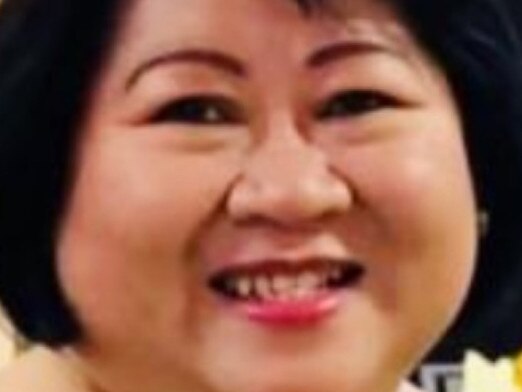Families of US COVID victims tell Donald Trump ‘guess what – we are afraid’
Broadway actor Nick Cordero, 41, is one of the 210,000 Americans who, unlike Donald Trump, didn’t beat COVID-19. And his family together with other victims’ families are reeling at the President’s bravado.
World
Don't miss out on the headlines from World. Followed categories will be added to My News.
- Dems scheme to remove ‘unfit’ Trump from office ‘tomorrow’
- VP clash: ‘Lost the China trade war? Biden never fought it’
As news broke last week that Donald Trump had the coronavirus, Arkansas father-of-five Keith Michael was going through a hell that has become familiar to a million families.
Sitting at the bedside of his wife of 30 years, allowed to finally visit his childhood sweetheart in hospital to say goodbye, he wondered how he could explain her loss to the toddler son they had adopted only two months ago.
After complaining a few weeks earlier of an earache, beloved primary school teacher Susanne Michael, 47, fell gravely ill with COVID.
“As I set by her bed tonight for one last time, I told her I loved her with every ounce of meaning a person in my situation could muster,” he wrote early Friday morning.
“This would be my last time to hold her hand as I felt her hand grow cold and watched the colour leave her precious body …
“I want to be mad at God for taking her from me at such a young age.
“We still have four children at home. Little man’s not even gonna remember her.”
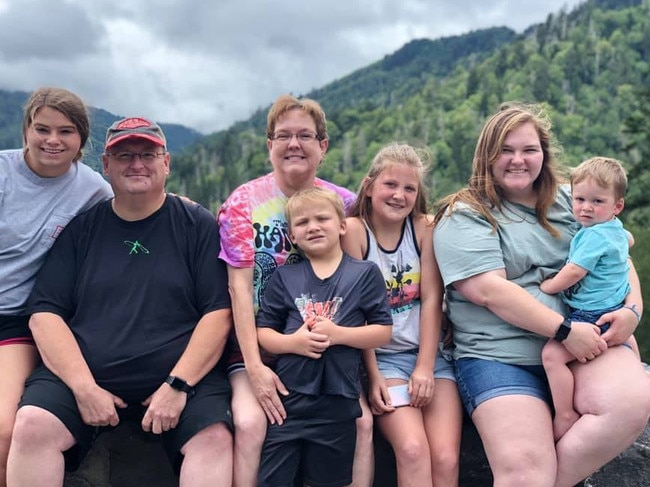
One of more than 210,000 fallen Americans, Mrs Michael was the second teacher in the southern state to die just last week after school returned from summer holidays.
Three days later, Mr Trump was buoyant at the White House as he crowed about how great he was feeling.
Having been flown by Marine One to one of the world’s best military hospitals, Mr Trump was one of just 10 patients worldwide granted access to an antiviral therapy and drug cocktail prescribed by a team of America’s leading doctors.
“Don’t let it dominate you,” Mr Trump said of the virus in a video.
“Don’t be afraid of it. You’re going to beat it. We have the best medical equipment, we have the best medicines, all developed recently.”
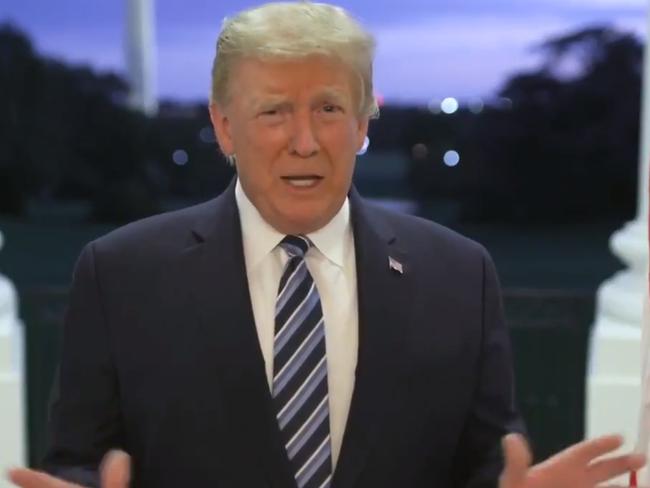
Perhaps nowhere is the inequity at America’s heart more evident than in its response to the coronavirus.
Ten months into the pandemic and after an abatement of cases over the northern summer, waves of infection are being reported across the Midwest and cooling weather is bringing renewed shutdowns to cities that had begun to open.
The virus has always hit the poorest hardest.
In New York state, one in 600 black children lost a parent or caregiver between March and July.
When cities across America were first shuttered and workers were ordered to stay home, the people who couldn’t afford to do so were the ones on the frontline, employed at hospitals, supermarkets, in transport jobs.
As the country reopens as part of an aggressive push by Republicans wanting to put the economic collapse behind them, many believe that more lives are being risked.
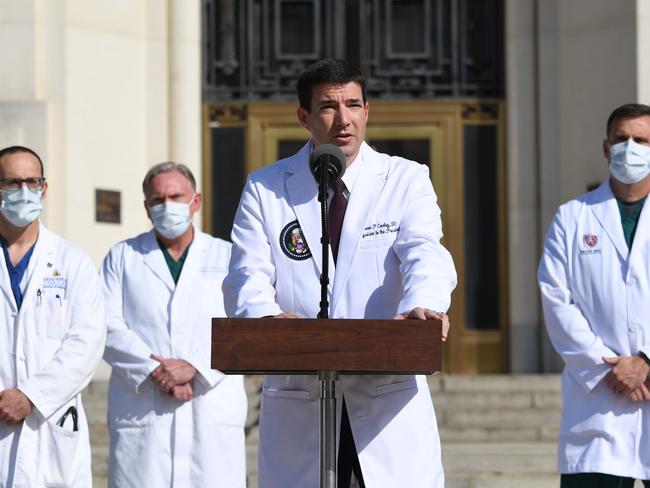
While there have been recent encouraging developments with vaccine testing and therapeutics such as the antibody treatment that Mr Trump hailed a “miracle” and said had “cured” him, these are a long way from being mainstream medicine.
And although Mr Trump said he was planning to make such anti-viral free for all Americans because “I want everybody to be given the same treatment as your president”, the reality is that this could take months – and by some estimates hundreds of thousands more deaths – for this to be the case.
Mr Michael said this week he didn’t blame any politicians for the death of his wife and also recommended people wear masks and take precautions.
“We don’t know how long this is going to last,” he told local TV station News 3 when asked if he was angry at anyone.
But there are many more whose lives have been up-ended by the pandemic who are more than willing to slam Mr Trump’s continuing bravado.
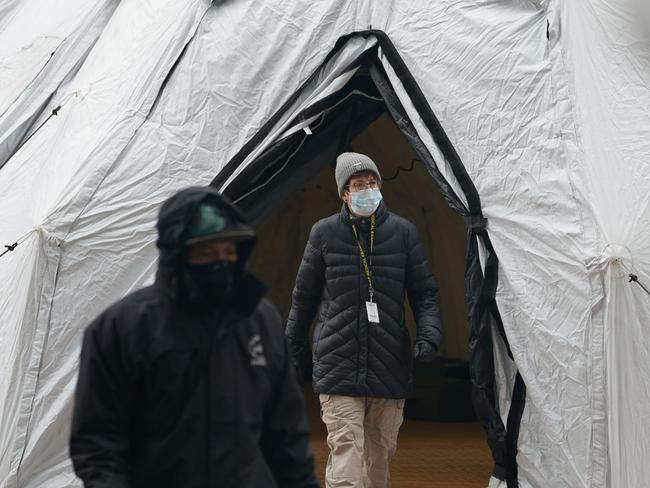
Connecticut courthouse worker Jonathan Coelho was just 32 years old when he died from COVID complications in April, and his wife Katie said this week she was stunned at how the president was discussing the coronavirus.
“We deserve better, my husband deserved better, 210,000 people deserved better,” she said on CNN this week.
“Nobody is looking at him thinking he (Trump) is strong or brave,” she said.
“He’s weak because my husband fought COVID, my husband wanted to come home and he deserved it, and this man is using this as a political propaganda to divide the nation when we’re already so broken.
“He could have done so much good with coming out and saying COVID is scary, and I’m sorry to all of these families but we’re going to get through this as a nation and as a country and he chose not to.”
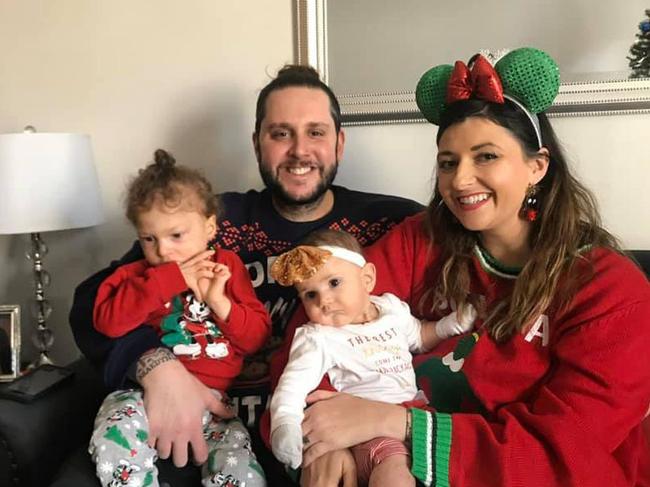
Broadway star Nick Cordero was just 41 when he died after 95 days in hospital in July and his wife Amanda Kloots reacted emotionally to Mr Trump’s words in a social media post on Monday.
“Don’t be afraid?,” she said, crying.
“We were afraid every single day.
“To tell somebody to not be afraid of this disease that took a life, that took over 200,000 lives, that took over a million lives. It’s just like a dagger in the heart.
“Guess what – we are afraid.”

With 40,000 new infections and about 900 deaths a day, so many Americans are still succumbing to the coronavirus each day that their passing doesn’t often make the news.
This wasn’t the case with Craighead Country Republican Chair Steven Farmer, who died on Tuesday about half an hour from where the Michael family were raising their five children in Arkansas.
A month after hosting a maskless gathering with local political leaders, Mr Farmer died in an intensive care unit.
His daughter Audrey Hayne had been chronicling his illness on Facebook and described how he had seemed to improve before taking a turn on September 25 and being placed on a ventilator.
“Dad’s soul is singing today even though ours aren’t,” Haynie wrote.
Another local leader who died this week was school superintendent Duane Bark, from Markesan in southern Wisconsin.
The athletics director had been sick for three months.
“Duane left an impact on me and many others and I will miss him greatly,” said one mourner.
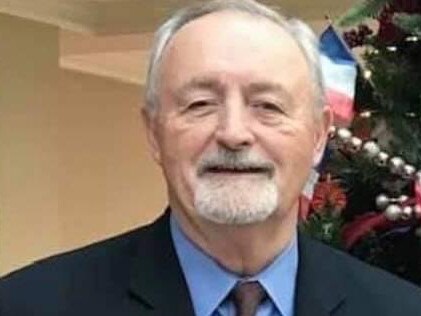
Special needs teacher Leo Lugo had just started a new job at Chaparral High School in New Mexico when he fell ill with what he thought was a cold.
After having COVID tests, Lugo and five other members discovered they had the virus, including his 91-year-old mother who had no symptoms.
After going to hospital, he quickly fell ill, according to his sister.
“We spoke to him and he was like I’m doing okay, just pray for me I’m going to be okay and he never got a break,” said Bertha Lugo.
“He never came out of a coma, he was in a coma until the time he passed.”
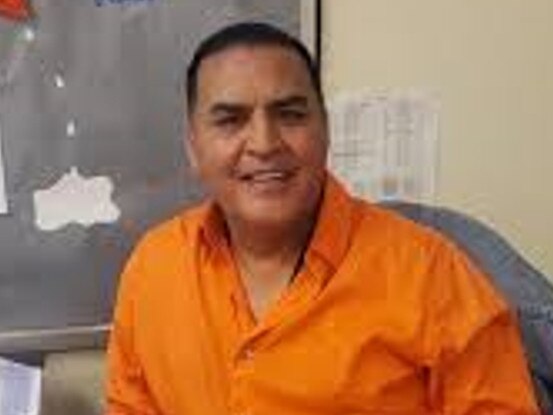
Teacher Margie Kidd’s daughter this week said her mother had been “very afraid of going back to work” but felt like she didn’t have a choice because she needed to “pay her bills” in Bluffton, South Carolina.
“She expressed to us several times about her concerns with being back in the building with COVID-19 numbers still being high in South Carolina,” said Essa Jackson of her mother.
“But she had no choice because the teachers were required to attend in-person meetings as well as set up their classrooms, even though they were going to be doing virtual learning.”
Mrs Kidd, 71, went downhill fast before she died last week and Ms Jackson said it was upsetting to hear people making light of the virus.
“I would like for people to stop saying that COVID-19 isn’t that serious, because it is,” she said.
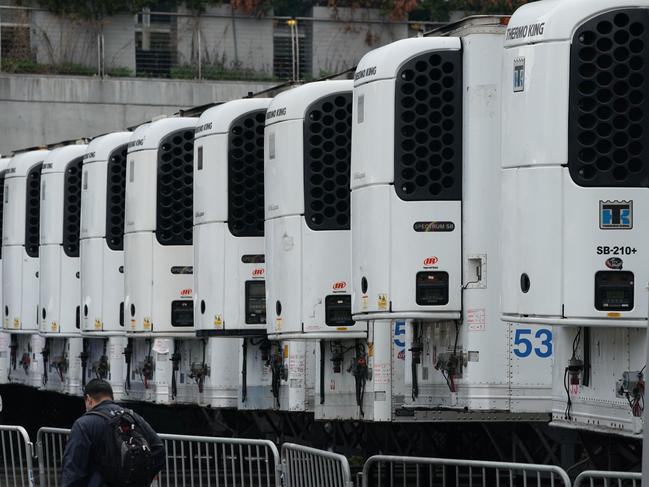
“My mom was older, but she was a very active senior and to watch her health decline in such a short period was devastating. You may not get sick or show symptoms, but you should take precautions to stop the spread of the coronavirus because it’s serious and it kills.”
Sally Fontanilla had spent the final weeks of her life working as a nurse in a COVID unit in San Bernardino, California, before she died on Monday.
As an asthmatic, her husband Ben said the 51-year-old had not worked at the beginning of the pandemic but that she wanted to help and felt she had taken the precautions when she recently returned to work.
“We take all of our precautions,” a co-worker named Megan told local press.
“We wear our masks, our shields, our gowns, our gloves, but … you never know.”
